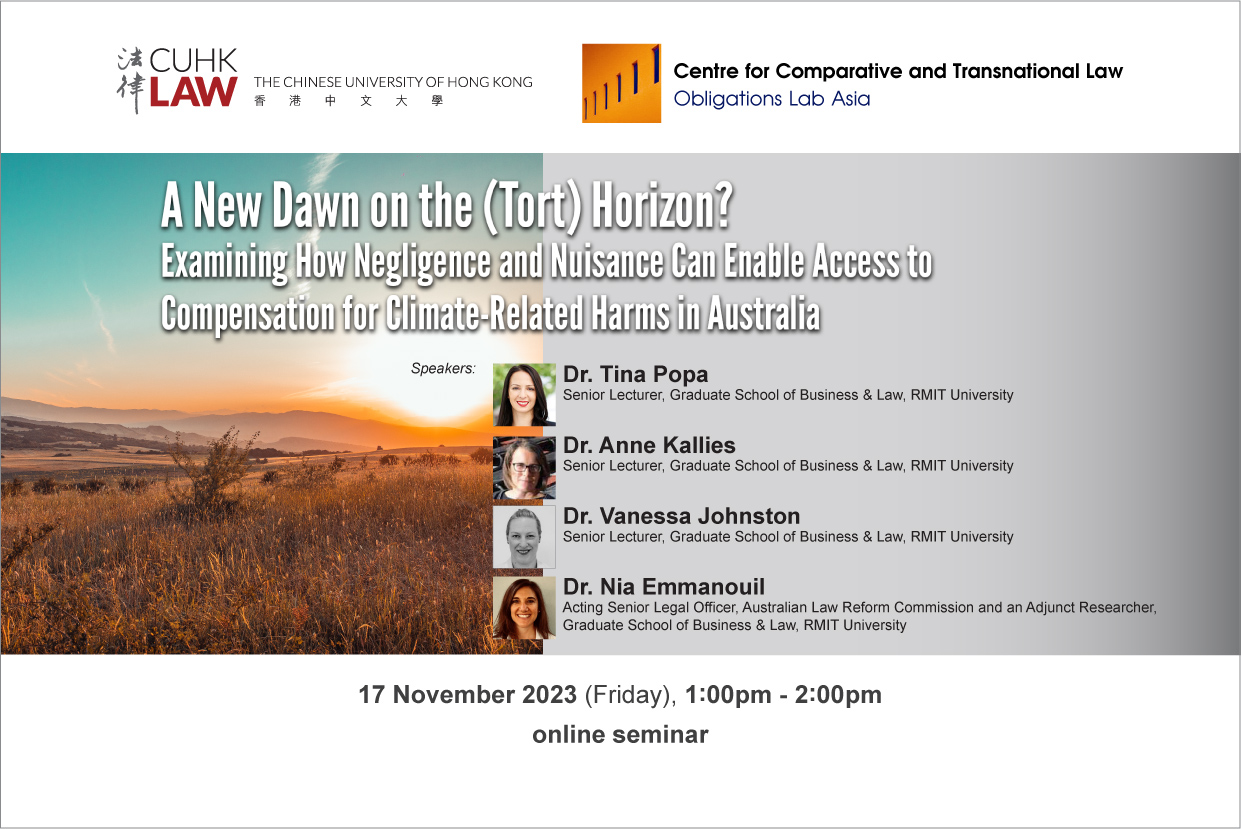CCTL Obligations Lab Asia Seminar - 'A New Dawn on the (Tort) Horizon? Examining How Negligence and Nuisance Can Enable Access to Compensation for Climate-Related Harms in Australia' (Online)
Increasingly, the global community is recognising that climate change can cause and contribute to a range of harms and hazards that impact the personal safety and property of vulnerable communities. A plethora of scientific reports have highlighted the need for governments and corporate actors to reduce greenhouse gas emissions to minimise the adverse effects of climate change, and to protect infrastructure and assets from climate change-related damage. In some instances, however, actions that are taken are too little, or too late, to address the existing risk of harm.
Recent case law in Australia and internationally, has highlighted that individuals and communities affected by climate change may be able to use tort law to initiate actions against public and private entities in relation to their actions (or omissions). Tort law, while often seen as being rooted in rigid doctrine, has already been used as a vehicle to ‘test’ potential civil cases about climate change-related harm.
The torts of negligence and private nuisance show great potential as means to claim compensation for change-related harms. While the application of negligence to climate change-related harm has already been tested in the Full Federal Court of Australia’s highly publicised 2022 decision of Sharma and Others v Minister for the Environment, the Court held that the Australian government did not owe a duty of care to the applicant on the facts at hand. While untested to date, the tort of private nuisance could provide an alternative avenue for landowners that have suffered harm or interference to their rights.
The law of torts has remarkable potential to adapt to societal needs to respond to climate change risk. This presentation considers how causes of action in tort law, specifically negligence and nuisance, can assist litigants pursuing a claim for compensation for climate change-related harms. The presenters analyse barriers to success, including existing doctrine and policy considerations, to argue that tort law has remarkable flexibility to adapt to the needs of people affected by climate change. However, the full potential for tort law has not yet been tested in Australia and its effects remain to be seen.
